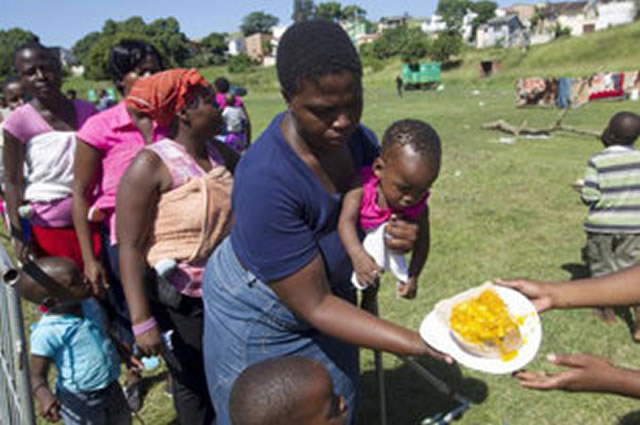Xenophobia: Implications for women and children

 Vaidah Mashangwa
Vaidah Mashangwa
XENOPHOBIA is a gross violation of human rights.
Further gross violations of human and violation of international humanitarian law can alter the course of cohesion between various countries and disturb the good relations among countries. It also changes the interests of various stakeholders making conflicts more intractable.
One gross violation of human rights has been the xenophobic attacks on foreigners in South Africa recently. This is notwithstanding the fact that South Africa is part of Sadc and the African Union, thereby disturbing the unity and collaboration of African countries.
This demands for accountability, whether by other member states, victims, relatives of victims, by local and international non-governmental organisations or by other various international actors.
While such disturbances have a serious impact on the social, economic and politics of the affected individuals and countries, the impact is felt more by women, children and other vulnerable groups such as the elderly people, people living with disabilities and expectant mothers.
It is disturbing that the xenophobic attacks are directed towards blacks and not the former colonial masters who still have greater control of the South African economy.
The blacks should at least be appreciated for providing the much needed labour.
Better negotiation techniques could have been used instead of burning people alive and beating them up as was the case.
While the causes of conflict range from mistrust, ethnic discrimination, preferential treatment, competition over resources, demand for political autonomy or independence and allegations of corruption, the bottom line is that such issues can be solved amicably especially between or among African countries.
Lives could have been saved by bringing all relevant stakeholders to the negotiating table and addressing grievances that parties may have against one another with the aim of peace-building.
While most people condemn grave crimes against humanity such as war and genocide, the recent xenophobic attacks can also fit into such categories, as they have caused suffering, social and regional unrest.
It must be noted that when conflicts such as the xenophobic attacks in South Africa take place, women are the worst affected because of their economic and social standing as well as their vulnerability and sexuality.
Women tend to have less access to health services, sanitation and they are vulnerable to rape and sexual harassment during any conflict.
The case of a Zimbabwean woman who gave birth in a holding camp shortly before repatriation to Zimbabwe is clear testimony of how conflict affects women and the vulnerable members of the community.
When women are in holding camps, they might need sanitary ware which may not be accessible at the time forcing them to substitute sanitary ware with tissue paper, newspapers and pieces of cloth thereby exposing themselves to infections.
As long as mothers are unsafe, children are also unsafe. Child protection rules and regulations are important as this ensures that the children are not ill-treated and have safe spaces to eat, sleep and play.
Lactating mothers are also vulnerable during such disturbances as they may go for days without eating as a result depriving lactating children of sufficient breast milk adversely affecting their growth.
This also applies to expectant mothers who might need constant reviews and might develop complications during this period.
The case of the Intercape bus which was recently high-jacked enroute to Johannesburg, South Africa mostly affected women who usually ply such routes for trade.
The women survivors gave testimony of how they lost their valuables such as cash and cell phones and narrated how frightening the experience was. Some will have to live with such memories for the rest of their lives.
In conflict situations such as that engulfing South Africa at the moment, it is easy to concentrate more on adults and forget about the children.
Even in war zones, there is rarely mention of the child but the mothers. In most instances, countries assume that the interests of the children are identical to those of their physically abused mother or that a mother always acts in the best interest of her children.
The child’s education is disturbed and the trauma they face is always underestimated. The protection of children in such instances should be strengthened.
Older children might even need counselling especially when they witness their parents or relatives being burnt to death or killed in broad daylight.
Children rely on adults who care for them to meet both their need for security, safety, love and a sense of belonging.
Instead, children are often harmed by those who they rely on for protection. Occasionally, children are also killed and are often injured when they scurry for cover.
These attacks have long term emotional and psychological effects. Every country should therefore protect children from harm.
Vaidah Mashangwa is the Provincial Development Officer in the Ministry of Women Affairs, Gender and Community Development. She can be contacted on 0772 111 592 or via email [email protected].









Comments